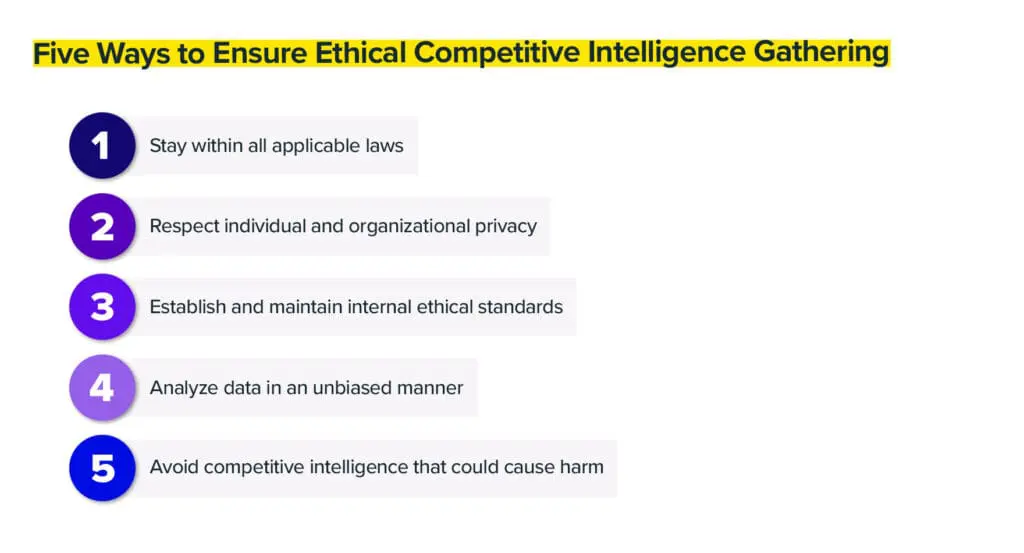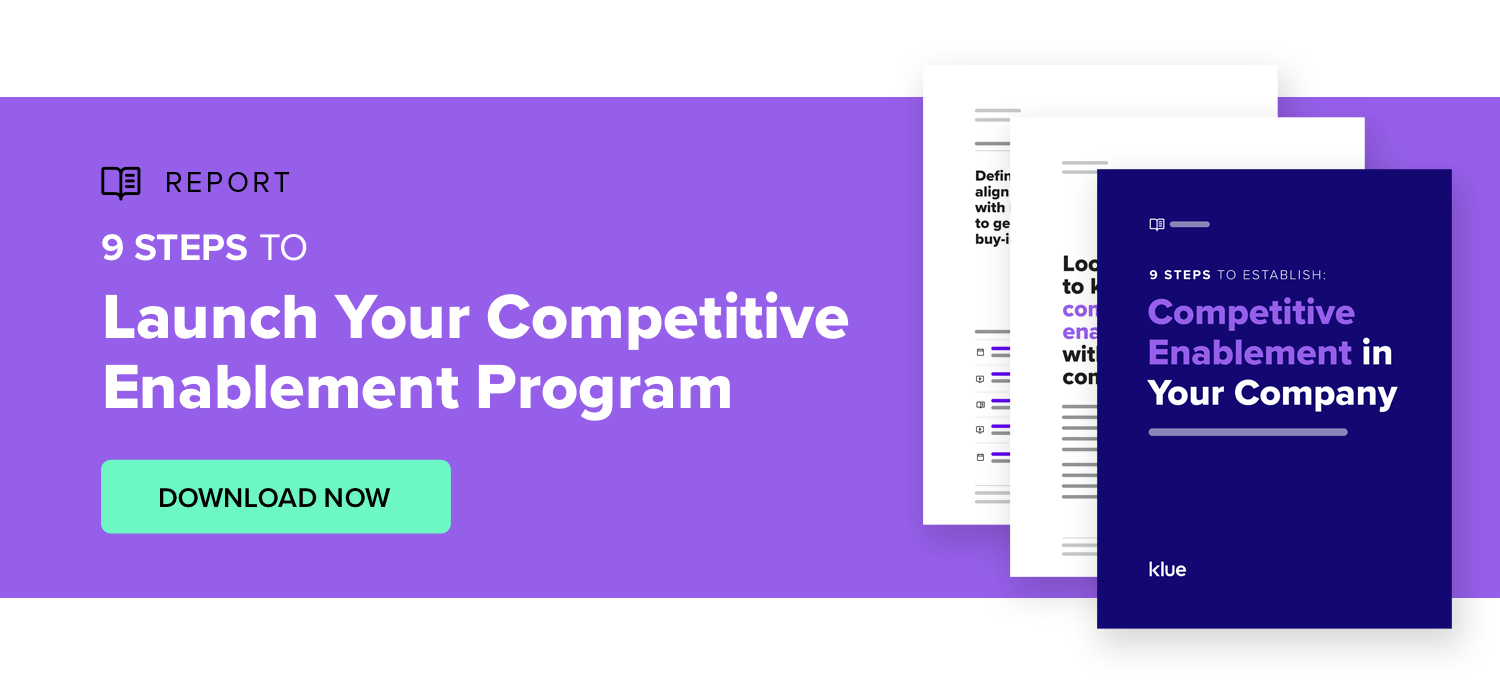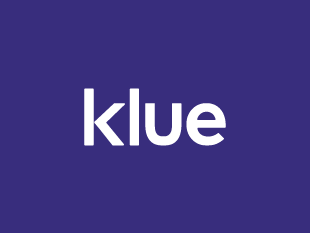Klue Compete
The Competitive Enablement Platform
Learn More
FIND OUT MORE >

The line between ethical and unethical competitive intelligence isn’t always obvious.
If you’re not gathering competitive intelligence on your competitors you’re falling behind. But without competitive intelligence ethics in place, you’re risking reputational — and possibly legal — consequences.
Here are three real-life examples of companies that crossed the line of ethical competitive intelligence gathering and got themselves into serious trouble.


In the year 2000 Oracle admitted to hiring private detectives to investigate independent trade groups that, according to Oracle, were giving Microsoft special treatment. When documents uncovered by the investigation showed up in the New York Times and Washington, it was alleged, though never proven, that those documents came from stolen laptops.
Hiring private detectives is perfectly legal. But using covert means to obtain competitive intelligence is generally considered to be unethical. And while the stolen laptop allegations were never proven, Oracle opened itself to reputational damage by engaging private investigators in the first place.


Hewlett-Packard’s (HP) board hired private investigators to find out which directors were leaking information to the press. It was later revealed that some of those investigators misrepresented themselves to phone companies to improperly gain access to the call records of Hewlett-Packard directors and journalists.
Four HP employees, including its chairperson, were charged with felony crimes (though the charges were dismissed a year later on the condition the accused complete 96 hours of community service). While the leaking of sensitive documents poses a huge issue for some companies, using cloak-and-dagger methods to uncover the culprits sets a bad ethical precedent for competitive intelligence.
Volkswagen paid $100 million ($188M in 2023 dollars) in a settlement over illegally obtained corporate documents. The case revolved around José Ignacio López de Arriortùra, a former Global Vice President of GM who was poached by Volkswagen. He was accused of stealing and sharing thousands of sensitive, confidential documents about GM’s pricing, technology and more.
Volkswagen never admitted wrongdoing — they claimed the company never benefitted from the information contained in the stolen documents. Lopez resigned from Volkswagen, and though he was criminally charged, the charges were dropped.
The moral of the story here is companies bear responsibility for refusing illegally procured competitive intelligence. Much like PepsiCo did in 2006 when a former Coca-Cola employee offered to sell trade secrets to Coke’s archrival.
Pepsi correctly alerted the authorities of the activity, and the perpetrators were sentenced to eight and five years in prison respectively.
The line between ethical and unethical competitive intelligence has become even more blurred since these three instances came to light.
When everything is recorded, screenshots easily taken and shared, it’s more important than ever that companies conduct ethical competitive intelligence gathering.
Here are five ways you can make that happen for your company.
Companies need to be diligent about using legal methods to gather competitive intelligence. Public intel is fair game. Check with the lawyers if you’re unsure about the legality of internal intel.
Accessing confidential customer data or trade secrets surreptitiously is not only unethical, it’s illegal. Companies should avoid behaviours that could be construed as spying, such as covert monitoring of competitors or their employees.
Set guidelines for ethical standards and make sure your employees are in the loop. This includes avoiding any behaviours that could be perceived as dishonest or manipulative, like spreading false rumours or misrepresenting their identity to gain access to confidential information.
Companies should analyze competitive intelligence sources objectively — not just cherry-pick the data that fits your narrative. Decision-makers should use the intelligence they gather to make informed choices based on accurate, dependable data.
Steer clear of information that could be used to blackmail, defame, or otherwise harm competitors. Finding an edge against a company’s product or strategy is fair game. Looking for ways to disparage the competition is unethical.
If you’re establishing (or inheriting) competitive intelligence at your business, it’s critical to establish a clear code of ethics. Stay within the boundaries of the law — and consult legal counsel on grey areas.
Don’t pretend to be someone or something you aren’t to fool someone or something into giving you competitive intelligence. Lastly, make sure your organization has an established set of ethical standards that employees are bought into.




Competitive Enablement
The topic of Large Language Models (LLMs) has a lot of confusion. Here's what you need to know about how Klue is working with them.


Competitive Enablement
Product Marketing
If your competitive intel game is too strong for automation, too pure for data privacy, and too rebellious for accuracy — then Klue AI is probably not for you.


Let’s do it. Tell us a bit about yourself and we’ll set up a time to wow you.
Let's do it. Tell us a bit about yourself and we'll set up a time to wow you.
XLet's do it. Tell us a bit about yourself and we'll set up a time to wow you.
XSubscribe to get our latest AI functionality and news in your inbox.
XOur Buyer Pulse feature, set to launch in Q2 2024, offers valuable insights into the factors influencing buyer decisions in your pipeline. By signing up for the waitlist, we can better gauge interest and proactively engage with you to streamline the setup and integration process before the feature becomes widely available.
X